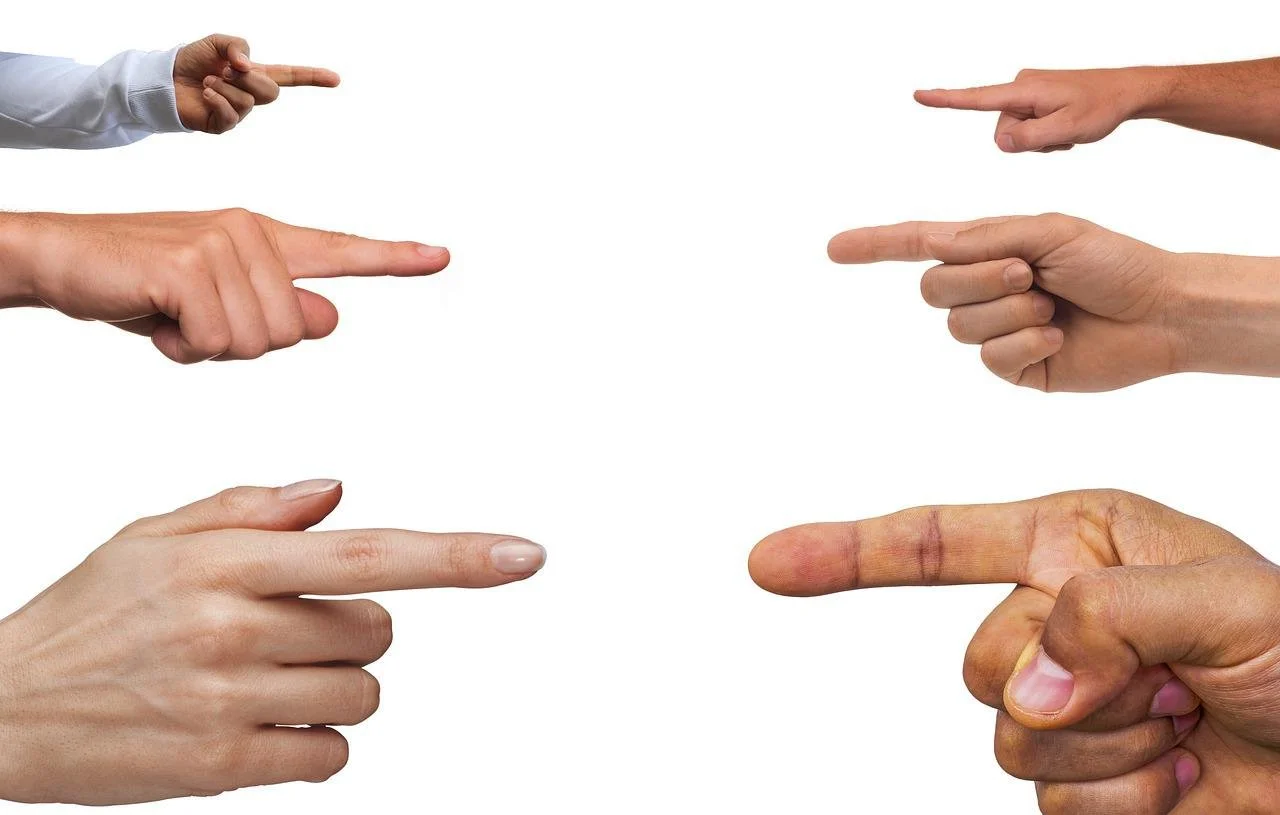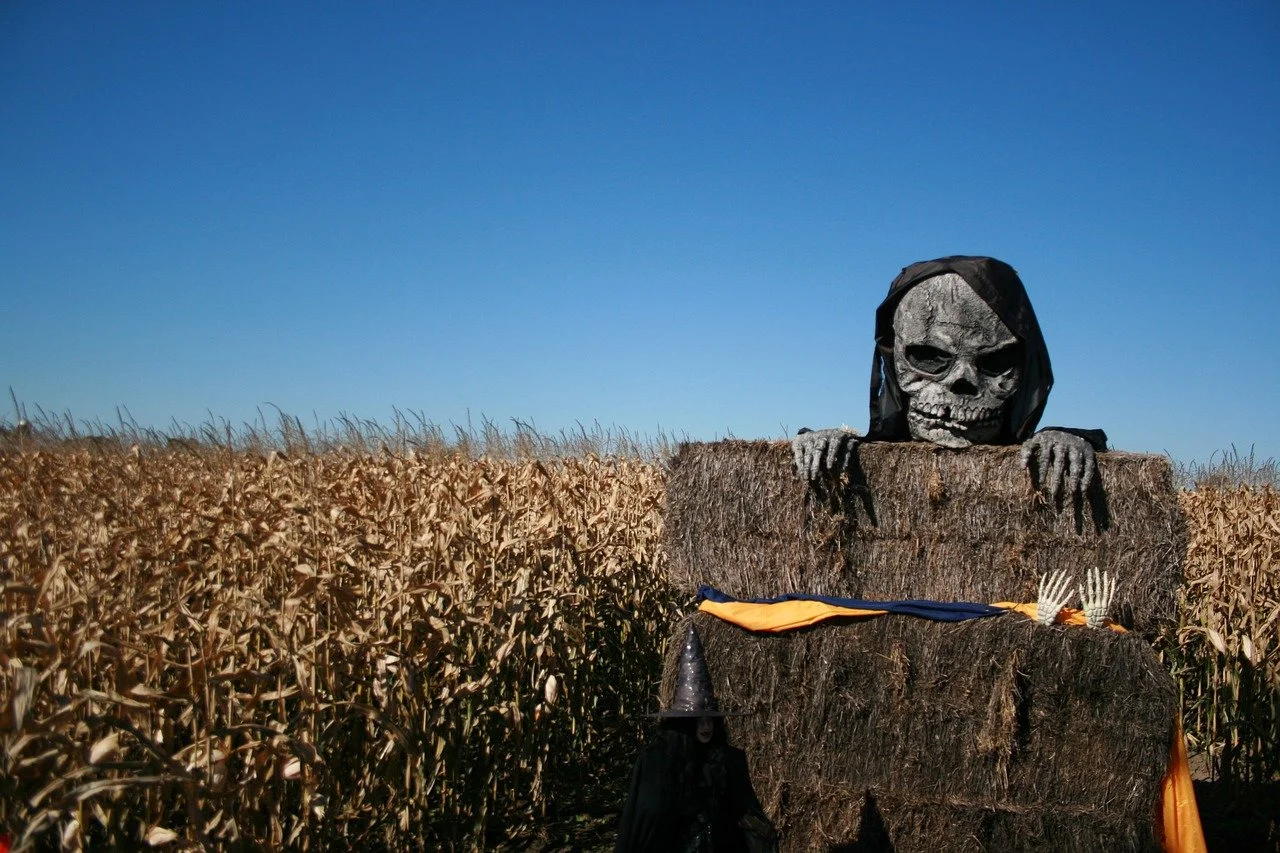FREEDOM FROM BITTERNESS (Parts 111-120)
WALKING IN FREEDOM – BITTERNESS
PART 111: THE POWER OF RESTORATION (PART II) (9/9/22)
When they had finished breakfast, Jesus said to Simon Peter, "Simon, son of John, do you love me more than these?" He said to him, "Yes, Lord; you know that I love you." He said to him, "Feed my lambs."
He said to him a second time, "Simon, son of John, do you love me?" He said to him, "Yes, Lord; you know that I love you." He said to him, "Tend my sheep."
He said to him the third time, "Simon, son of John, do you love me?" Peter was grieved because he said to him the third time, "Do you love me?" and he said to him, "Lord, you know everything; you know that I love you." Jesus said to him, "Feed my sheep.
Truly, truly, I say to you, when you were young, you used to dress yourself and walk wherever you wanted, but when you are old, you will stretch out your hands, and another will dress you and carry you where you do not want to go" (Jn 21:15-18)
God created each of us for a role and for a purpose. He has put desires in us “from our mother’s womb” (Gal. 1:15). As we spend time with the Lord, He reveals to us our deepest longings and shows us how He intends to fulfill those yearnings.
Peter is an example of refocused desire. Peter was a fisherman and he thought that fishing is what he loved. But, as we saw in the last post, when Jesus appeared on the shore, Peter left the trophy catch and jumped into the sea to swim to Jesus.
Peter denied Jesus, but Jesus tenderly and lovingly restores Peter. “Do you love Me?” Jesus asks three times just as Peter denied Him three times. But Jesus does something more. He goes deep into the desire of Peter’s heart.
Peter thought he was a fisherman. But Jesus revealed to him another destiny. Jesus tells him to care for His sheep. “Peter, you are a shepherd.” (Chapter 5 of 1 Peter shows this heart of a shepherd.)
Through restoration of relationship, Jesus revealed Peter’s call to him. And Jesus revealed and reordered the desires of Peter’s heart.
Here is the pattern:
1. You have something you desire. You think you love it.
2. You turn your attention from what you desire in order to love Jesus.
3. Jesus establishes a love connection with you such that you desire Him above all else.
4. Through that love relationship with Jesus, Jesus reveals the deep desires of your heart. Only through restoration and guidance from Him can we fulfill God’s purpose which He has implanted in our hearts.
God is a good God!
Next post: Walking in freedom – Bitterness: The first step
WALKING IN FREEDOM – BITTERNESS
PART 112: THE FIRST STEP (9/11/22)
For where jealousy and selfish ambition exist, there will be disorder and every vile practice. But the wisdom from above is first pure, then peaceable, gentle, open to reason, full of mercy and good fruits, impartial and sincere.
And a harvest of righteousness is sown in peace by those who make peace (James 3:16-18).
For decades, Ukraine has been known as “the bread basket of Europe.” But conflict with Russia has interrupted Ukraine’s supply of grain to the world. And now, many leaders are predicting a food shortage. Food prices are soaring. Leaders are saying many people will go hungry or even starve because the conflict cut off the food supply.
Analogously, peace leads to a harvest of righteousness. Peaceful relationships bear righteous fruit. But conflict stops the harvest. Conflict leads to “disorder and every vile practice.” Conflict rips the woven fabric of human interaction.
There always has to be the first step. When offense and broken relationship exist, there has to be the person who is willing to take steps toward peace. And that person must be a person who loves peace – a person whose love for peace is greater than the hurt, the selfish ambition, or the jealousy.
The hurt, the selfishness, the jealousy – these feelings are hard to overcome. So take time to meditate on the attributes of the “wisdom from above.” These attributes belong to God and they come from Him:
-Pure
-Peaceable
-Gentle
-Reasonable
-Full of mercy
-Full of good fruits
-Impartial
-Sincere
Ask the Lord to help you possess these attributes in your heart and then to live them out. Oh Lord, I need this in my life!
Next post: Walking in freedom – Bitterness: The trespass offering
WALKING IN FREEDOM – BITTERNESS
PART 113: THE TRESPASS OFFERING (PART I) (9/16/22)
“If anyone sins and commits a breach of faith against the LORD by deceiving his neighbor in a matter of deposit or security, or through robbery, or if he has oppressed his neighbor or has found something lost and lied about it, swearing falsely—in any of all the things that people do and sin thereby— if he has sinned and has realized his guilt and will restore what he took by robbery or what he got by oppression or the deposit that was committed to him or the lost thing that he found or anything about which he has sworn falsely, he shall restore it in full and shall add a fifth to it, and give it to him to whom it belongs on the day he realizes his guilt.
“And he shall bring to the priest as his compensation to the LORD a ram without blemish out of the flock, or its equivalent for a guilt offering.
“And the priest shall make atonement for him before the LORD, and he shall be forgiven for any of the things that one may do and thereby become guilty” (Lev 6:2-7).
The book of Leviticus details a number of offerings that occurred at the tabernacle. Some offerings were made routinely, and other offerings depended on the circumstance or occasion.
The trespass offering was circumstantial. It was made when an offense happened – cheating a neighbor, theft, oppression, keeping property that a neighbor lost and not returning it, or swearing falsely.
In each of these situations, the person committing the offense made restitution to the neighbor. The person restored the item in full – and added a fifth to it. The offending person “made it right.”
But something else happened. The offending person also brought a sacrifice (a ram without blemish) as “compensation to the Lord.” I tend to think that, when an offense occurs, the offense is between me and the other person. But the idea behind the trespass offering is that, when an offense occurs, the offense is not only against the neighbor, but it also is an offense against the Lord. The peace and harmony in society that the Lord intends had been broken. So an offering was made to the Lord in order to restore the peace and to atone for the offense.
And for today, that is the only point. An offense is not only between two persons, it also involves the Lord. The sacrificial offering underscored the idea that the Lord is involved in the situation in which there is offense. In my next post, we will explore the trespass offering further, and look at what Jesus said about it.
Next post: Walking in freedom – Bitterness: The trespass offering (Part II)
WALKING IN FREEDOM – BITTERNESS
PART 114: THE TRESPASS OFFERING (PART II) (9/18/22)
“But I say to you that everyone who is angry with his brother will be liable to judgment; whoever insults his brother will be liable to the council; and whoever says, 'You fool!' will be liable to the hell of fire.
“So if you are offering your gift at the altar and there remember that your brother has something against you, leave your gift there before the altar and go. First be reconciled to your brother, and then come and offer your gift” (Matt 5:22-24).
In my last post, I discussed the trespass offering in Leviticus 6 – the offering that was made when an offense occurred between two parties. The offending party not only made restitution to the neighbor, but also presented an unblemished offering to the Lord because the peace and harmony that the Lord intended had been breached.
In His teaching here, Jesus makes direct reference to this trespass offering, But He also pinpoints a problem that had arisen in the practice of this offering. Instead of the TRESPASS OFFERING, it had become BYPASS OFFERING. The party to the offense was fulfilling the second part of the offering by bringing the offering to the Lord. But that person was skipping the first part of “making it right” with the other party. It was the great bypass.
And isn’t that what we tend to do? A offense exists with another person. But we skip the part about “making it right” or resolving the offense with our neighbor and we go straight to worshipping God. It is easy for us to worship God, but really hard (and annoying) to go make it right with our neighbor.
Jesus is saying “Listen! You guys missed the point of the trespass offering. God is not interested in your worship, or even your sacrifice, if you haven’t taken the first step. You need to address it with your neighbor and to try to heal the offense before you can come to worship Me in a way that pleases Me. How can I accept your offering when the peace and harmony that I intend is broken?”
Steve Parker noted that, even worse, when we present worship to God with an ongoing offense, our tendency is to think “God knows. God is on my side!” Instead of healing the offense, we use God as a weapon to justify the offense and to inflict revenge on the other party!
So Jesus corrects this type of worship. “Take care of the offense first and then I can accept your offering to Me. Go address your annoying neighbor. Then come worship Me. Those are the proper steps of the trespass offering.”
You know, this bit about following Jesus, it isn’t real easy!
Next post: Walking in freedom – Bitterness: Offense of another
WALKING IN FREEDOM – BITTERNESS
PART 115: LIFE IS IN THE BLOOD (9/23/22)
“[The priest] shall not go in to any dead bodies nor make himself unclean, even for his father or for his mother. He shall not go out of the sanctuary, lest he profane the sanctuary of his God, for the consecration of the anointing oil of his God is on him: I am the LORD” (Lev.21:11-12).
One more theme from my study of the trespass offering: The priest who served in the tabernacle was forbidden from contact with dead persons – even if it was his father or mother. Why? Because inside the tabernacle was the presence of God and that presence meant life. Death did not belong there.
Did you know that the priest sprinkled the blood of the animal being sacrificed on the altar (see Lev. 5:9) and even was told to do it inside of the tabernacle after two sons of Aaron died at the tabernacle (Lev. 16:14)? The blood of every creature is its life, which is why Israelites were instructed not to eat blood. “For the life of every creature is its blood: its blood is its life” (Lev. 17:14).
The sprinkling of the blood of an unblemished animal symbolized life. The blood purified and removed any vestige of death from the dwelling of God – a foreshadowing of the blood of Jesus.
Bitterness, offense, and unforgiveness bring death. God does not desire that type of death in His presence. They should be purified and removed by the life-giving blood of Jesus before coming into the presence of the Holy One.
Next post: Walking in freedom – Bitterness: Offense of another
WALKING IN FREEDOM – BITTERNESS
PART 116: PARTICIPATION IN OFFENSE (9/25/22)
But on the second day, the day after the new moon, David's place was empty. And Saul said to Jonathan his son, "Why has not the son of Jesse come to the meal, either yesterday or today?"
Jonathan answered Saul, "David earnestly asked leave of me to go to Bethlehem. He said, 'Let me go, for our clan holds a sacrifice in the city, and my brother has commanded me to be there. So now, if I have found favor in your eyes, let me get away and see my brothers.' For this reason he has not come to the king's table."
Then Saul's anger was kindled against Jonathan, and he said to him, "You son of a perverse, rebellious woman, do I not know that you have chosen the son of Jesse to your own shame, and to the shame of your mother's nakedness? For as long as the son of Jesse lives on the earth, neither you nor your kingdom shall be established. Therefore send and bring him to me, for he shall surely die."
Then Jonathan answered Saul his father, "Why should he be put to death? What has he done?" (1 Sam 20:27-32).
Saul is bitterly offended at David. Yet David has not given any reason for offense. Saul’s offense arises from Saul’s own insecurities. Saul’s has an inordinate need to dominate other people and to receive glory from them. So Saul is jealous of David’s talent and popularity. He wants to kill David.
Saul expects his son, Jonathan, to take his side. David stands in the way of Jonathan’s future kingship. In the world of political intrigue, Jonathan should naturally hate David. He should assume Saul’s offense and seek to kill David as well.
But amazingly, Jonathan refuses. He righteously discerns that David has given no real reason for offense. He also loves David. So Jonathan stands up to Saul and does not partake in his offense.
Partaking in the offense of another person happens frequently. Gossip is a common tool to convince another person to “get on board” with the offense. “Tale-bearing” is used to encourage disdain and scorn against its target.
Even more, participation in an offense creates factions that align against one another. An unkind word or an untoward act by a person in one party causes offense in the opposing party. How many times have you heard: “Did you hear what that [blankety-blank) said? He is just one of those [blankety-blanks] trying to destroy what we believe in.”
Gossip and accusation are often used to invite participation in an offense. Taking the offense of another is an invitation to take on the bitterness, jealousy, and rage of another person or party.
Don’t take the bait!
Next post: Walking in freedom – Bitterness: Hard choices
WALKING IN FREEDOM – BITTERNESS
PART 117:
HARD CHOICES (9/30/22)
Then Saul's anger was kindled against Jonathan, and he said to him, "You son of a perverse, rebellious woman, do I not know that you have chosen the son of Jesse to your own shame, and to the shame of your mother's nakedness? For as long as the son of Jesse lives on the earth, neither you nor your kingdom shall be established. Therefore send and bring him to me, for he shall surely die."
Then Jonathan answered Saul his father, "Why should he be put to death? What has he done?"
But Saul hurled his spear at him to strike him. So Jonathan knew that his father was determined to put David to death. And Jonathan rose from the table in fierce anger and ate no food the second day of the month, for he was grieved for David, because his father had disgraced him (1 Sam 20:30-34).
Saul is offended at David. His envy and rage are so great that he tried to kill David with his spear twice.
As we discussed in our last post, Jonathan righteously refused to partake of Saul’s offense. So what does Saul do? He tries to kill Jonathan, his own son! He hurled his spear at Jonathan as well.
This event is an illustration of a basic principle about a controlling spirit. The spirit of control tries to destroy what it cannot control. In fact, I can add to this principle: The spirit of control tries to destroy what it cannot control, even his own son.
This principle is played out in the American political arena today. If you are not with me and my offenses, then I will destroy you. I will cancel you utterly and completely.
But Jonathan had made a covenant with David (1 Sam 18:3), a covenant that involved not just David and Jonathan, but also the Lord (1 Sam 20:8). Jonathan honored that covenant, and refused to participate in his father’s offense against David. That choice would not only cost Jonathan the affection of his father, it would cost him the throne of Israel. But he made that choice nonetheless.
We are “ministers of a new covenant” (2 Cor 3:6). It is a covenant of God, but it also is a covenant by which we become members of one body – His body.
Is it possible that, when we participate in the offense of another, we become covenant breakers and fulfill the expectations of Saul? Is it possible that, when we refuse to participate in the offense of another, we become like Jonathan, the righteous man who honored his covenant?
Next post: Walking in freedom – Bitterness: A pure heart
WALKING IN FREEDOM – BITTERNESS
PART 118: A PURE HEART
(10/2/22)
"Saul and Jonathan, beloved and lovely! In life and in death they were not divided; they were swifter than eagles; they were stronger than lions.
"You daughters of Israel, weep over Saul, who clothed you luxuriously in scarlet, who put ornaments of gold on your apparel.
"How the mighty have fallen in the midst of the battle!
"Jonathan lies slain on your high places. I am distressed for you, my brother Jonathan; very pleasant have you been to me; your love to me was extraordinary, surpassing the love of women.
"How the mighty have fallen, and the weapons of war perished!" (2 Sam 1:23-27)
This passage is the latter part of the lament of David after the deaths of Saul and Jonathan (See 2 Sam 1:17-27 for the full lament.) Saul has tried to kill David for many years. He chased David all over Israel and pursued David as if he were a “dead dog” (David’s own words). David lived the life of fugitive and even fled to enemy nations such as the Philistines for refuge.
But Jonathan was faithful to David and to the covenant which they made. So we should expect David to lament over the death of Jonathan.
But with the death of Saul, David should be relieved, if not pleased. David’s big ordeal is over. His enemy, Saul, who harbored such bitterness and hatred for David, is dead. David can return to Israel without fear for his life. Even more, the path is now cleared for David to claim the throne as the rightfully anointed king.
Yet David’s lament is for both Saul and Jonathan. David has the grace to mourn the death of his enemy. The purity of his heart is such that he can proclaim, “You daughters of Israel, weep over Saul…”
What sort of grace is needed in our lives for us to love our enemies?
Next post: Walking in freedom – Bitterness: Dealing with skeletons
WALKING IN FREEDOM – BITTERNESS
PART 119:
DEALING WITH SKELETONS (10/7/22)
And David said, "Is there still anyone left of the house of Saul, that I may show him kindness for Jonathan's sake?"
And Mephibosheth the son of Jonathan, son of Saul, came to David and fell on his face and paid homage. And David said, "Mephibosheth!" And he answered, "Behold, I am your servant.”
And David said to him, "Do not fear, for I will show you kindness for the sake of your father Jonathan, and I will restore to you all the land of Saul your father, and you shall eat at my table always."
And he paid homage and said, "What is your servant, that you should show regard for a dead dog such as I?" (2 Sam 9:1, 6-8)
The tables are now turned. Saul hunted David and tried to kill him for many years. David’s plight was such that he labeled himself a “dead dog” (1 Sam 24:14).
But now David is king. The house of Saul has fallen. And it is the crippled grandson of Saul that labels himself a “dead dog.” David could have “finished off” Mephibosheth and not given it another thought. But that would have let bitterness dwell in the land. Instead, David shows his people a different way. David honors his covenant with Jonathan and initiates generational healing.
Note that David doesn’t just say “I forgive you” and then act as if everything was “hunky dory.” David not only shows mercy to Mephibosheth, he restores his status. David invites Mephibosheth to dine at the royal table – a recognition of Mephibosheth’s royal lineage and a seat of great honor. Even more, David restores his fortunes to him - all the land of Saul. Imagine how vast the land holdings of the king must have been. This grant is quite a bounty!
When we act with mercy, compassion, and forgiveness, it encourages generational healing. But complete healing implies restoration of the status that existed before the offense. When that occurs, the “ghosts and demons” of resentment and bitterness are rendered helpless. The “skeletons in the closet” don’t have anything to rattle about and they evaporate.
Through forgiveness and restoration, David is healing bitterness that could have haunted his descendants for generations. The grace he extends to Mephibosheth will reverberate for centuries to come.
What heritage do we want for our children…and their children…and their children...?
Next post: Walking in freedom – Bitterness: “Let it go”
WALKING IN FREEDOM – BITTERNESS
PART 120: LET IT GO (10/9/22)
“For I know whom I have believed, and am persuaded that he is able to keep that which I have committed unto him against that day” (2 Tim 1:12b)(KJV).
“He is able to keep that which I have committed unto Him.”
One of my favorite movie scenes occurs at the end of Indiana Jones and the Last Crusade. Indiana Jones (Harrison Ford) and his father (Sean Connery) are archaeologists. They both have been pursuing the Holy Grail their whole lives. At the end of the movie, Indiana Jones has finally found the Holy Grail. It is at his fingertips and he is reaching for it. He really wants it!
The problem is that Indiana is hanging off a precipice in a cave that is fast imploding. His father is straining to hold one hand as Indiana reaches for the cup with his other hand.
His father, who has been calling him “Junior” throughout the whole movie (much to Indiana’s annoyance), says “Junior, give me your other hand. I can’t hold on!”
Straining, Indiana breathlessly says, “I can get it. I can almost reach it, Dad!”
Wisely, his father looks him in the eye and says, “Indiana…Indiana…let it go.”
Indiana relents. He releases his desire for the Holy Grail and lets it go. His father then pulls him to safety.
We all have a wise and merciful Father. He upholds us, even when we are hanging off a precipice. As to bitterness and unforgiveness, He looks at us and He says, “Indiana…Indiana…Let it go!”
He is able to keep what we have committed to Him.









